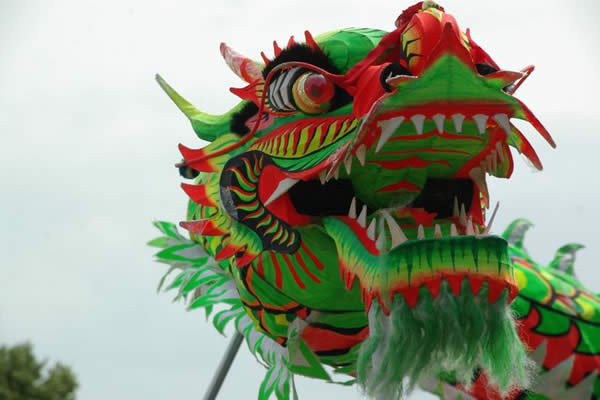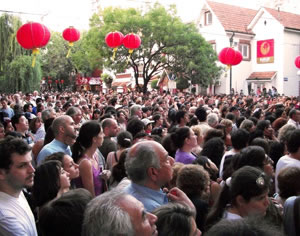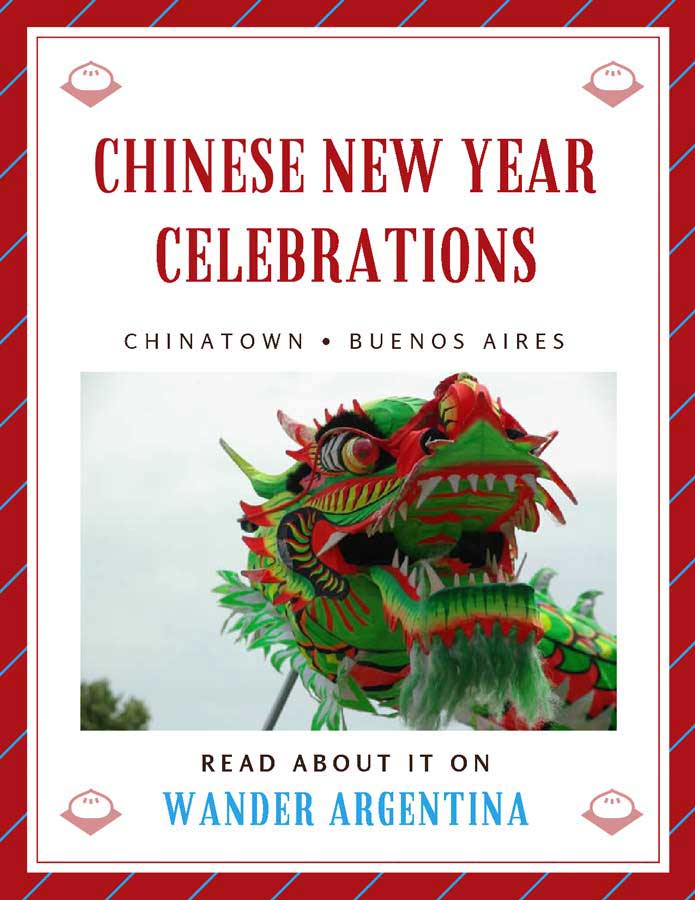Buenos Aires Chinatown is gearing up to celebrate the Year of the Wood Dragon.
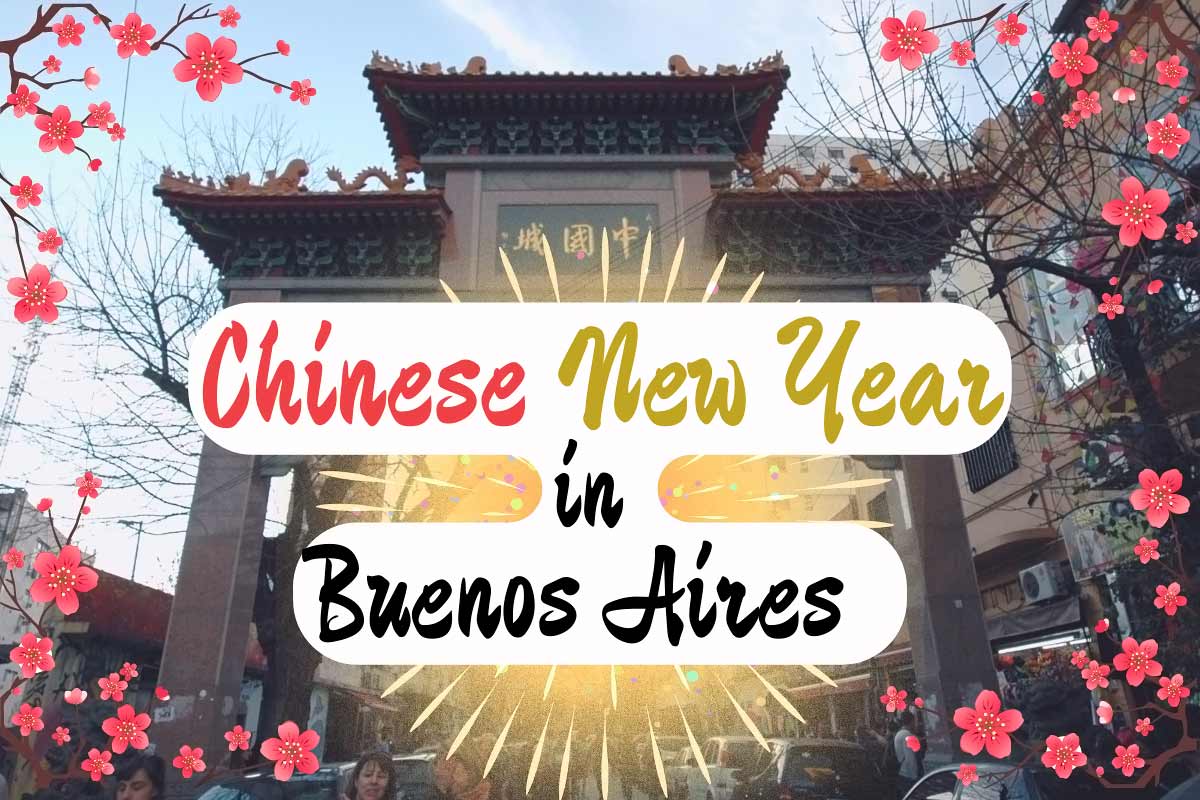
Chinese New Year is celebrated on the second new moon after the winter solstice (summer solstice here in the Southern Hemisphere!).
Celebrations in 2024
Outdoor events in Belgrano include a colorful show in which artists of both Chinese origin and other communities participate.
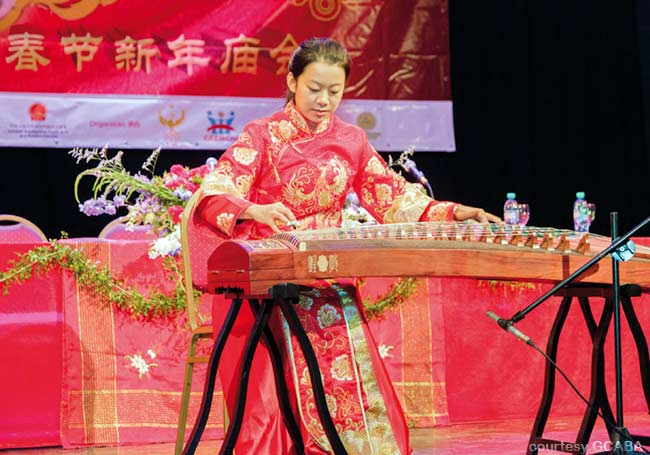
The Chinese Dragon will offer its typical dance to the rhythm of the gong to augur good fortune for those present and for businesses in the area.
Consecutive to this parade, visitors are dazzled by the Lion Dance.
Other performances include advanced martial arts demonstrations, percussion performances, acrobatics and the obligatory tango demonstrations made up of Argentine and Asian-Argentine dancers.
There will be 50 food stands offering a wide variety of budget-friendly and delicious Asian street food.
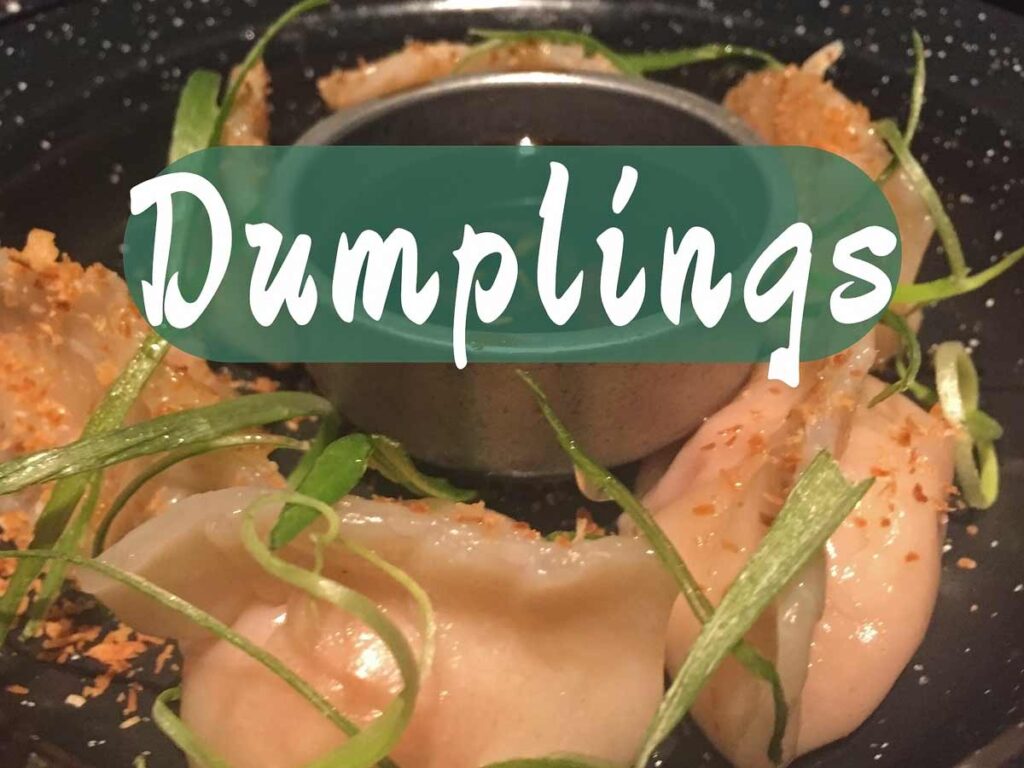
Visitors can also see live calligraphy demonstrations and peruse the exotic plants for sale.
There are often Tai Chi classes given by Master Liu Ming, Pope Francis‘ former Chinese doctor.
The event can be viewed on the Buenos Aires city government’s YouTube page linked below.
Chinese New Year Celebration through the Years
The number of attendees to Buenos Aires’ Chinese New Year celebrations has grown exponentially in the last decade beginning with the 2011 festival — the year Buenos Aires decided Chinese culture was cool and the city began to help organize the festival.
That year a record 60,000 visitors overwhelmed organizers.
According to the Buenos Aires Human Rights and Cultural Department, there are 200,000 Chinese citizens in Argentina, mostly from the Fujian province.
Chinese citizens make up the fourth largest immigrant group in Argentina and have become part of the cultural fabric of the country.
One percent of Argentina is of Asian descent.
“A lot more Argentines are studying Chinese now to operate in the business world,” says Maria Antonía Diaz, secretary at the Chinese-Argentine Cultural Association, one of the groups organizing of the event.
“Others are drawn to this area because of the variety of businesses and an interest in the rich culture of China.”
To accommodate the growing crowds at Chinese New Year Celebrations, the principle stage for the final act is no longer in central Chinatown, or the nearby Plaza Barrancas de Belgrano, where it was originally relocated.
After also outgrowing that location, ending celebrations now take place some blocks away at Plaza Parques Nacionales (Av. Figueroa Alcorta and Sucre).
Year of the Wood Dragon
This year marks Year 4722, the year of the Wood Dragon.
The lunar new year begins on January 22, 2023
The water rabbit symbolizes peace, benevolence and renewed spirituality.
According to the Chinese horoscope, it can be an ideal year for increased movement, collaboration, fertility, peace and renewed hope.
People born in the year of the Water Rabbit have characteristics such as quick wit, adaptability, and good problem-solving skills.
Chinese New Year’s Celebrations Around the City
Dragon dances will be performed to wish good fortune to all attendees.
The dragon dancer will be accompanied by Chinese lions and martial arts exhibitions by adults and children, including Chi Kung, and Tai Chi for health.
This year’s event will feature over 40 stands offering food and crafts.
Attendees can enjoy famous dishes from the community, bubble tea, and Chinese pastries.
Visitors can also purchase Feng Shui decorative items, traditional clothing, and much more.
There will also be calligraphy demonstrations, tea ceremonies, and presentations on traditional Chinese medicine.
The celebrations are being extended this year as the festival will also take place the following weekend on the 10th and 11th of February.
When: The date for the Chinese New Lunar Year changes every year.
The city usually holds the festival on the closest weekend to the actual date of Chinese New Year.
• Saturday February 3, Saturday 10th & Sunday the 11th, 2024
12:00 p.m. — 8:00 p.m.
Parque de las Naciones, en Av. Figueroa Alcorta y Sucre
Buenos Aires
Online: Buenos Aires City Government Youtube Channel
• Belgrano
Dragon Boat Races in Puerto Madero
Another exciting event is the Dragon Boat Race on February 4th, at Dock 1 in the Puerto Madero neighborhood.
Dragon Boating is an ancient nautical sport.
This activity arrived in Argentina in 2018, and the first competition was held in 2019.
Today, the discipline has thousands of followers, making this country the most developed in South America in this sport.
What are Dragon Boats?
Dragon boats are canoes for 10 or 20 rowers, with a dragon’s head at the prow and a dragon’s tail at the stern.
The team captain leads the experience and sits in front of the two lines of paddlers, setting the rhythm of the synchronized movement with a drum.
It’s a thrilling spectacle and the docks on the River Plate in Puerto Madero, Buenos Aires is an unusual setting for the race. The 2nd and 3rd will be for training; and the 4th, the big official competition.
Schedule:
- 9:30 Opening Ceremony
- 10:00 a.m. to 2:00 p.m. Regattas
- Lunch Break
- 3:00 p.m. to 6:00 p.m Regattas
- 6:30 PM Award Ceremony
Distance: 200 meters
Cup: New Year
Organized by: AAdBD – Argentine Dragon Boat Association
Red Lights at the Obelisco
Another special thing to ring in the Chinese New Year this year is that the famous Obelisco, the central spire of the city will be lit up red on February 9. There will be an event at 7:00 p.m.
